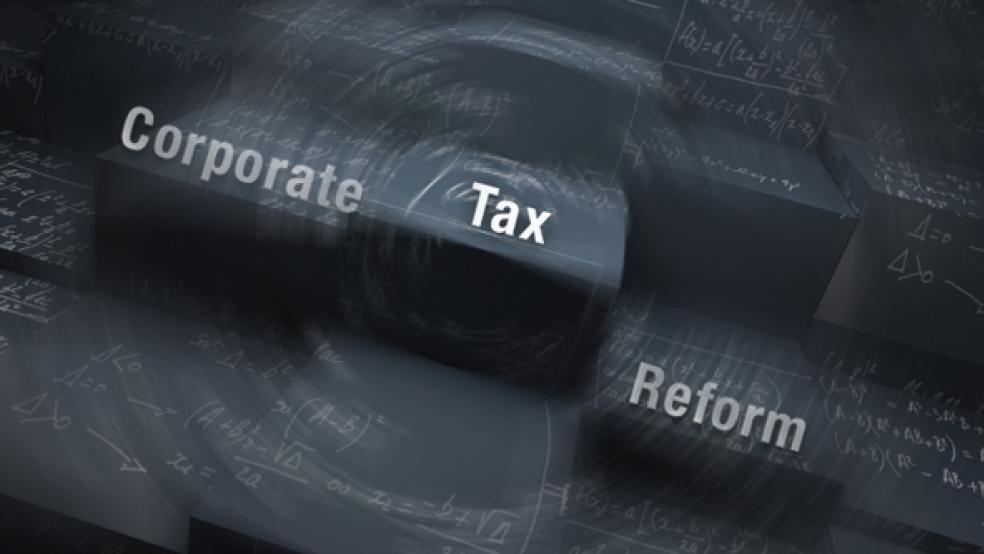A corporate tax overhaul may be a pipe dream until at least 2013, but that isn’t stopping major corporate tax honchos from staking out their positions now on what the final plan should look like. Their main message is that they are willing to avoid breaking the bank by relinquishing all of their corporate preferences in exchange for a tax rate of 25 percent or lower.
The top U.S. corporate tax rate is currently 35 percent—the highest of any country besides Japan, and that will change in April when Japan is scheduled to cut its corporate rate by 2.5 percentage points. When state taxes are added to the mix in the U.S., the corporate rate soars to 40 percent. Yet few companies pay the full rate because of a convoluted system of tax write offs.
“We understand that in this era of growing budget deficits that base-broadeners need to be on the table,” said Anne Buettner, Senior Vice President of Tax for The Walt Disney Company. “The Walt Disney Company supports the base-broadener concept along with a strong and meaningful reduction in the corporate tax rate …. Everything’s on the table.”
Buettner spoke on Wednesday at a conference in Washington sponsored by the RATE Coalition, a group advocating lower tax rates.
The chief tax officers for Macy’s Inc. and FedEx sounded a similar note, saying a revenue-neutral iteration of this formula would be a game-change that would enable them to create jobs, offer higher pay and benefits to workers, and invest in the future of their businesses. All three executives said their companies currently pay an effective tax rate of 34 percent or higher.
Despite the growing uncertainty over when – or if – Congress and the White House will take on fundamental tax reform, business executives throughout the country have signaled their interest in a tax reform recipe along the lines of what the three corporate executives outlined.
Last summer, the CEOs of Wal-Mart Stores and Kimberly-Clark urged the Senate Finance Committee to embrace a scheme that would lower rates while jettisoning tax preferences and write-offs.
Sen. Rob Portman, R-Ohio, who served on the congressional Super Committee last fall, plans to unveil his own corporate tax reform plan in the coming weeks that will likely be along these lines. Corporate tax reform is one of the few areas where lawmakers can “find bipartisan support and get something done” in the near future, he said Wednesday.
But there are many roadblocks: For one, a 25 percent-or-lower tax rate can’t be attained by simply eliminating all the corporate tax breaks and subsidies from the code.
A November analysis by the congressional Joint Committee on Taxation concluded that purging the code of all the business tax breaks would only result in enough savings to cut the corporate tax rate to 28 percent if the plan were revenue neutral. “The numbers just don’t add up,” says John Buckley, former chief tax counsel for the House Ways and Means Committee.
There is also a conflict between the corporate world’s approach and the concept that Obama laid out in his State of the Union address that the tax code should favor manufacturing and research and development companies. “Those things [Obama wants] are antithetical to a 25 percent rate,” said Clint Stretch, Managing Director for Tax Policy at Deloitte and Touche.
That’s because, under the current law, the majority of the corporate tax breaks favor manufacturing-related deductions. Keeping those items in the code, while reducing the corporate tax rate to 25 percent would mean a net revenue loss, Stretch said.
Finally, The RATE Coalition doesn’t account for all the members of the business community, many of whom don’t fit the tax profile or share the same concerns of the mostly retail and high-tech companies in the organization. “The RATE Coalition is a very important segment of the business community, but it’s not the only segment,” Stretch said. “The politics aren’t fully developed around this issue yet. Congress has to figure out how to get enough support that it can move forward, and that won’t be simple since some segment of business is going to be a loser in corporate tax reform, by definition.”





